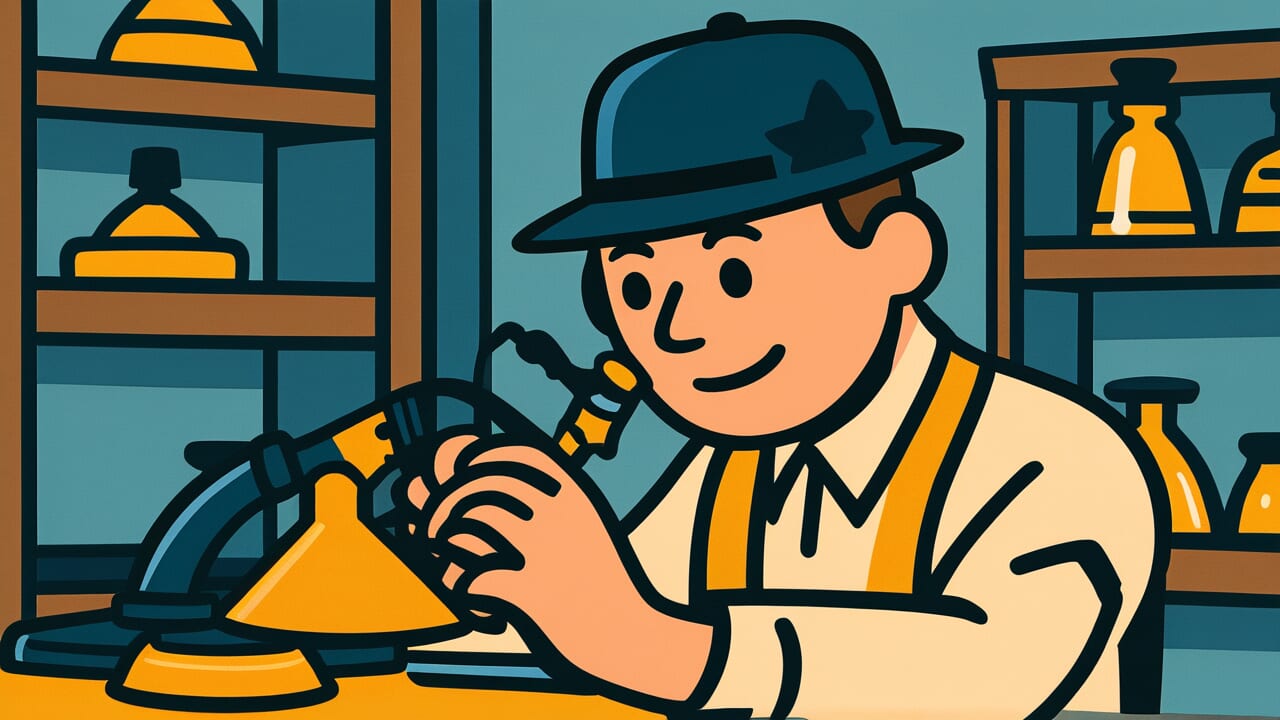How to Read “While applying paste, a hat too”
Nori tsuide ni bōshi
Meaning of “While applying paste, a hat too”
“While applying paste, a hat too” means taking care of other tasks while you’re already doing something. It expresses the idea of using the same tools, location, or timing to efficiently complete additional tasks alongside your original purpose.
This proverb is used when you want to avoid wasting time or effort by doing things efficiently. For example, running another errand while you’re already going somewhere, or completing related tasks while you’re already preparing something.
This way of thinking remains very practical today. In our busy daily lives, we can save time by handling multiple related tasks together instead of doing them separately.
However, this proverb means more than just efficiency. It values flexible thinking that seizes opportunities and the life wisdom of accumulating small improvements.
Origin and Etymology
There don’t appear to be clear written records about the origin of “While applying paste, a hat too.” However, we can make interesting observations from how the phrase is constructed.
This proverb likely came from the idea of pasting a hat while you’re already working with paste. From the Edo period through the Meiji era, paste was frequently used in daily life.
People used paste for many purposes: replacing shoji paper screens, washing and stretching kimono fabric, and making paper crafts.
The treatment of hats during this time is particularly noteworthy. After the Meiji era, Western culture influenced Japan and hats became popular. People sometimes used paste inside hats to reinforce them or maintain their shape.
Records also show that paste was used for traditional Japanese headwear like eboshi and crowns during the era of traditional clothing.
Once you prepared paste by dissolving it, people felt it was wasteful not to use it all. Since you already had the paste ready, why not look for other items that needed pasting?
This common people’s wisdom and rational spirit likely gave birth to this proverb. Through the concrete tool of paste, it expresses the practical wisdom of Japanese people in doing things efficiently.
Usage Examples
- If you’re going to the post office, while applying paste, a hat too—I’ll take care of the bank errand as well
- Since I’ve already taken out the tools, while applying paste, a hat too—let’s do the other repairs too
Universal Wisdom
The proverb “While applying paste, a hat too” captures humanity’s instinctive desire for efficiency and the wisdom of maximizing opportunities. Why do people bother looking for things to do “while they’re at it?”
It’s because we have a universal desire to accomplish more within our limited time and effort.
What’s interesting is that this proverb shows not just an efficiency technique, but deep wisdom about “how to seize opportunities” in life. In life, perfect timing rarely comes.
Rather, the secret to building a rich life is having the flexible attitude to notice small opportunities in front of you and layer other possibilities onto them.
Our ancestors found this truth even in trivial daily tasks. They embedded wisdom that applies to all of life into the small act of using paste.
One action calls for another action. Small improvements accumulate into great results. This is the essence of human creativity that never changes across time.
This proverb has been passed down through generations not just for its surface value of efficiency. It celebrates humanity’s positive attitude of doing their best with limited resources.
It’s a philosophy of living wisely and shrewdly, not wasting even the smallest opportunity.
When AI Hears This
When working with paste, two opposing calculations run simultaneously in the human brain. One is the loss aversion calculation: “Since I’ve already taken out the paste, it would be wasteful not to find other things to paste.”
The other is recognizing time constraints: “Right now, my tools and hands are wet with paste, and this state won’t last long.”
What’s interesting is how these two psychological forces reinforce each other. Behavioral economics research shows that people have such strong feelings about not wasting already invested costs (in this case, taking out the paste) that they justify additional unnecessary actions.
However, when the physical time limit of “before the paste dries” is added, humans mysteriously speed up their decision-making and execute actions they would normally hesitate over.
In other words, this proverb captures a rare moment when irrational judgment (sunk cost effect) and rational efficiency (window of opportunity) occur simultaneously. The limited time frame created by paste—a material with the property of “drying”—connects two cognitive biases that normally work separately and drives people to action.
The higher the cost of maintaining a prepared state, the more likely people are to act beyond their original purpose. This has the same structure as the psychology of overconsumption when trying to “get your money’s worth” from modern subscription services.
Lessons for Today
What this proverb teaches modern people is the importance of observation skills that don’t miss small chances hidden in daily life. We’re so busy that we tend to focus only on the single task in front of us and overlook the possibilities spreading around us.
However, by broadening our perspective just a little, we can accomplish two or three things with the same time and effort.
What’s important is not treating this way of thinking as merely an efficiency technique. It’s also training that develops flexible thinking in life.
Layering another meaning onto one action. Drawing multiple values from one opportunity. This thinking habit becomes a power you can apply in all situations, whether at work or in relationships.
Modern society overflows with time management and task management apps. But what we really need is a creative perspective that draws maximum value from the situation in front of us.
The next time you do something, pause and think: What else could I do with this opportunity? That small question should enrich your daily life.


Comments